Steph was eating her lunch, Jacob was on a bridge, John was in a supermarket, Katy was at home, Chloe was at school and Angela was hundreds of miles away in the heart of the Alps when she had a conversation about suicide.
Thursday 1st February 2018 is Time to Talk day. A day on which Time to Change emphasise the importance of talking about mental health anywhere, anytime with anyone.
A lot of progress has been made in recent years in getting people to talk about mental health conditions. However, the stigma surrounding talking about suicide still remains.
In this article, STOP Suicide Campaign Makers share their personal experiences of talking about suicide to demonstrate the life-saving impact that these conversations can have.
Suicide is everybody’s business. We can all be alert to the warning signs, ask directly about suicide and help those who feel suicidal to stay safe.
Before you read on, please sign the STOP Suicide pledge to show your support for the campaign and normalising conversations about suicide.
Hannah
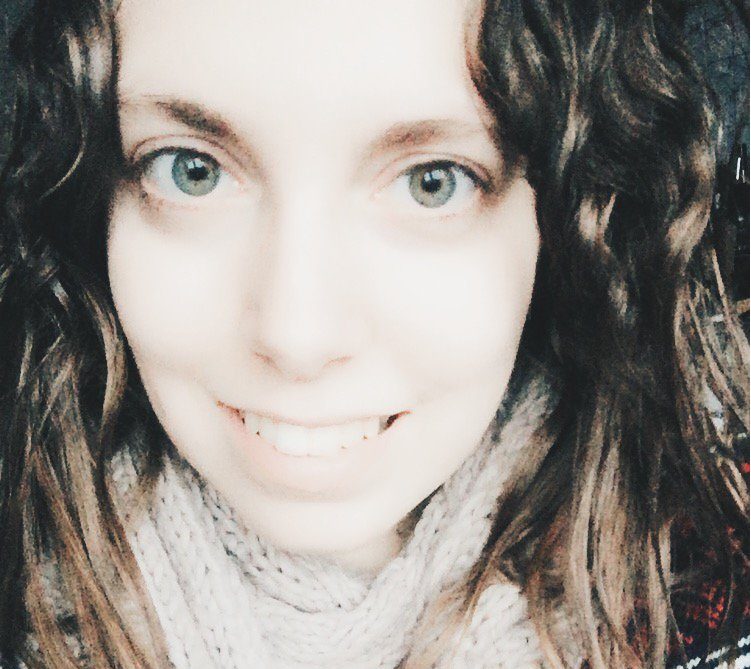
Twitter: @paintmeasmile
“I find that talking about mental health is one of the best therapies.
It allows you to express how you are feeling and, when you talk to someone who is experiencing thoughts and feelings that are dark and scary, it’s reassuring to know that you’re not the only one experiencing it.
When I spoke to my friend a month ago, he was experiencing suicidal thoughts and had made a few attempts to take his own life. I had the pleasure of talking to him and getting to know him. I feel like this had a positive impact on him. He wanted to have someone there. Someone to care, and listen. He is now fighting his depression.
He is seeing the positives that each day brings. He thanks me for being there to talk to him. I’m just glad that I was there when he needed me most. I’m so happy with the progress that he is constantly making.”
Steph

Twitter: @HelloStephSlack
“I’ve had quite a few conversations with people close to me about suicide but one that sticks out is late last Summer meeting a friend during her lunch break in a Pret in the City.
They had told me they were struggling with suicidal thoughts and consistently low moods a few weeks before and I’d been worried about them since.
We spent the next hour catching up about work and life, which included me being very specific about whether they were still experiencing suicidal thoughts, what mechanisms they had in place to keep them safe, and reiterating that I was always there to talk to.
This particular conversation sticks out because this is typically NOT something you hear talked about in the City of London – it was a public place and we were on a time limit. But we talked about it anyway, and they came away from the conversation feeling heard and loved, with a bit of a plan about what else might help them, and knowing that there was someone there to speak to if and when they were feeling low or at crisis point.”
John
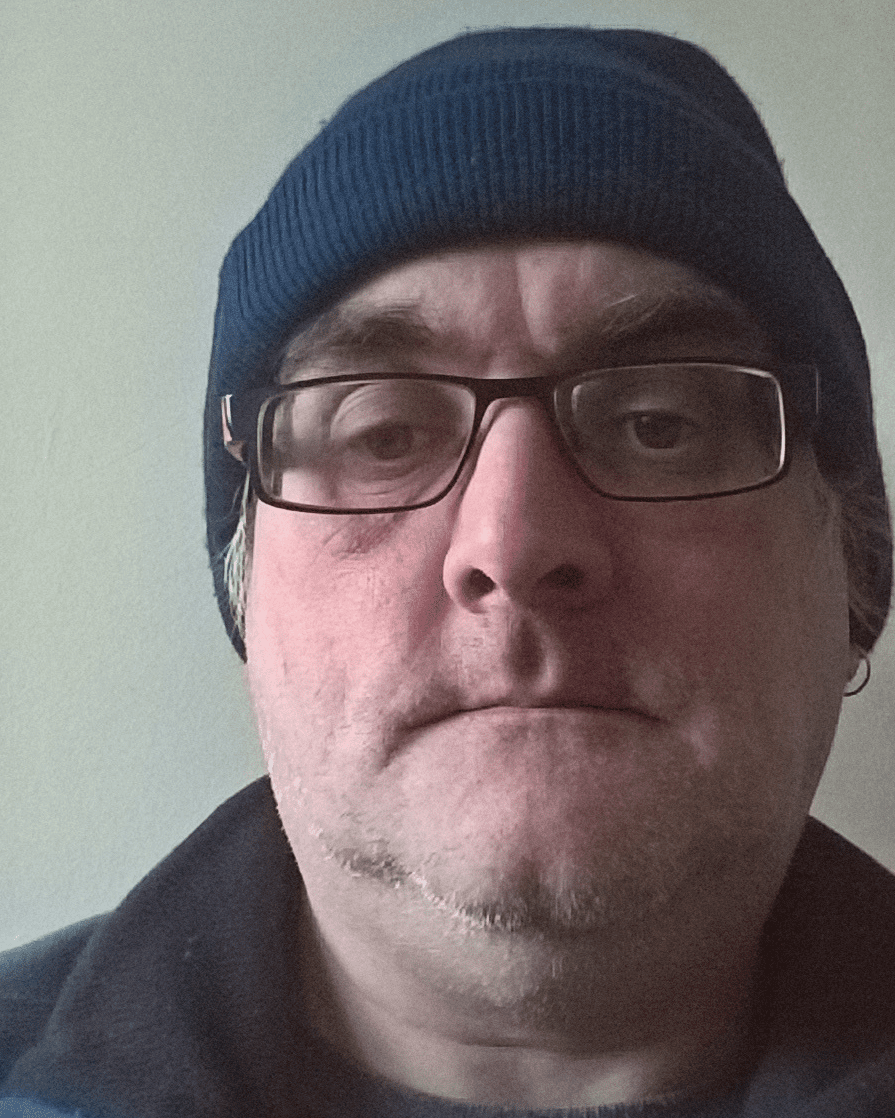
“In the summer of last year, I was shopping in my local supermarket and came across a lady of advanced years, in emotional difficulty shall we say.
I have ASIST (Applied Suicide Intervention Skills Training), so we just took things at her pace and talked her feelings out of why she was feeling like giving up her tomorrow.
Sad story, but it all ended happily, with a hug, we still meet occasionally, but over a tea in the supermarket café and not the freezer aisle like the first time.”
Nicole

Twitter: @_nicolesjourney
“My friend and I were walking one morning, talking about our usual things, when they said, ‘I don’t see the point anymore’.
I knew they had been feeling low but I did not know how bad. As soon as I heard this, I asked about suicidal thoughts. My friend looked numb but spoke to me about what thoughts they were having.
I tried my best to remind my friend of all they had to live for but ultimately I knew this could only make a small difference. I ensured they knew I would always be there, wherever and whenever they needed me. Together, right there in the park, we made a plan to stop these thoughts, step by step.”
Eleanor
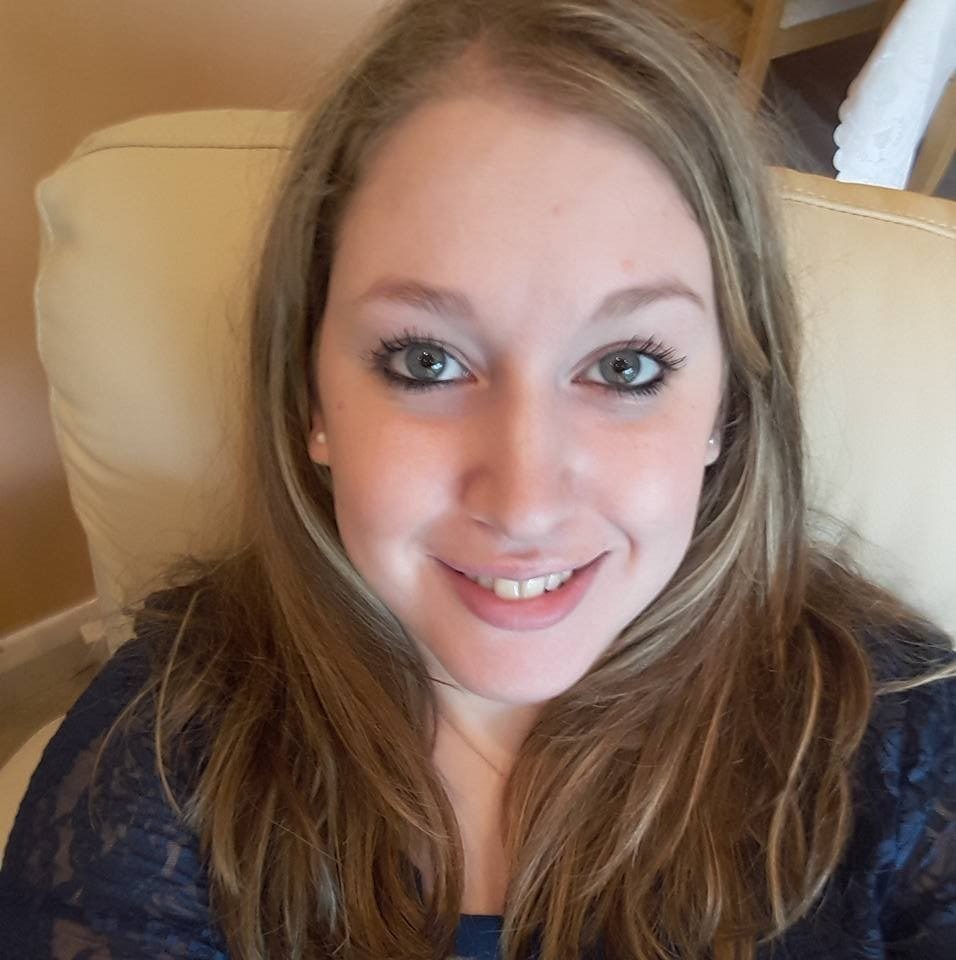
Twitter: @EleanorSegall
“In 2013, I experienced a suicidal depression. I was incredibly low, exhausted, sleeping all day and couldn’t cope with life.
This was part of my bipolar disorder and my medications at the time were not holding my moods. My parents had recently divorced and I had moved house and finished a degree. Then, my Grandma passed away. The stress of all this tipped me over into a deep depression.
The truth is I didn’t want to die, I just couldn’t deal with the pain of living. It was incredibly difficult for my parents, because I would say to them ‘it would be better off if I wasn’t here’. I had so much emotional pain that the only way to manage it for me was to talk about how scared I felt about feeling suicidal. I was concerned that if I didn’t express it, that it could have been very dangerous for me- I didn’t want to die so talking was the only way out.
Thankfully this was hugely positive because my parents understood that the suicidal thoughts were the depression and not me inside. They let me express how I felt, provided a listening ear and used their own life experience to help me. They went with me to my psychiatrist and stayed with me during home appointments. They helped pick up my prescriptions for anti-depressants and looked after me, until I had been lifted out of the depression.
Having loved ones to talk to when I felt suicidal, to not feel alone and to have support every day was vital to my recovery.”
Steven

Twitter: @StevenChappel1
“I spent New Years Eve alone in my local pub where I don’t know anyone (I moved here two months ago) and walking home I knew things could turn out very badly as my emotions were draining away from me and worthlessness started to kick in.
At that precarious (and now precious) moment my children rang me to wish me Happy New Year and I promptly broke down in tears. I knew they had unwittingly dragged me back to a safe place simply by making contact, telling me how much they loved me and made me promise to maintain more regular contact, in particular face-to-face meetings so they could hug me.”
Laura

Twitter: @laurabxo
“The first time I spoke about suicide was with my psychiatrist.
It was really weird because I didn’t have the urge to take my own life, but I still had the ideology of it. I thought I was going crazy!
But my psychiatrist understood what I meant and reassured me that what I was experiencing was normal. He encouraged me to speak openly about it with those who I felt comfortable with, to normalise it, and to feel safe with myself and my thoughts.
He also told me to trust my body and instincts, and to talk openly if I felt things were getting worse, because my feelings were important and mattered.”
Beth
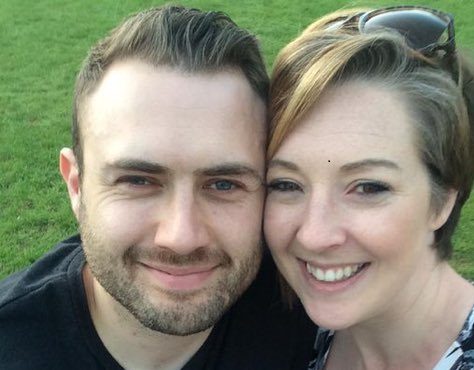
Twitter: @waverleywelsh
“Not too long ago, I had a really bad mental health day and had a meltdown in the car. I was thinking of all the ways I could end it because I felt I couldn’t cope.
My partner was there when I got hysterical and reassured me that all would be OK. He encouraged me to get an emergency GP appointment and talk to him about why I didn’t want to live anymore.
He talked me around and let me know that I was important and that he was there for me. If it wasn’t for him talking to me, I don’t know what I would’ve done.
When I feel really low, I talk to him and he makes me realise how important life is.
Jacob

Twitter: @JacobALPeople
“The day when I was stood on Waterloo Bridge last year in London looking over the edge in the depths of despair after my friend took his own life. I was approached by a policeman who not only just wanted to keep me safe, he also wanted to listen to me and in that moment he gave me the strength to keep going and walked me to the train station to get back home.
He simply told me that things will get better and it made me recognise that something as small as listening can save someones life.”
Angela

Twitter: @_unapologetica
“Suicidal thoughts plagued me for a little while before I opened up about them. The thoughts themselves scared me greatly but the fear of being judged for them was bigger so I stayed silent. Until one day it was too much, I knew I needed to tell someone otherwise I was going to go through with it.
At the time I was living in a small studio flat in the heart of the Alps, France, and whilst this sounds like perfection unfortunately it wasn’t. I sat looking at the mountains, sobbing as I wrote a text to my mum to say I couldn’t do this anymore, how it was too unbearable to live with the amount of fear and anxiety I was living in.
5 minutes later she phoned and we had a difficult and honest conversation for the both of us. A weight lifted off my shoulders, of course the thoughts didn’t just magically disappear but it wasn’t a secret I had to bear anymore.
From two different countries we managed to have this conversation, even on different time scales we made time for that incredibly important and life saving conversation. Without it I’m not sure what would have happened.”
Chelise

Twitter: @CheliseStroud
“Last year, after suffering the loss of my boyfriend to suicide, I was grief stricken and despondent.
Survivors of suicide loss often begin to struggle with their own feelings of wanting to die. It was during this time that my friend Charlotte courageously asked me outright if I was suicidal. When I said yes, she began texting me every day. Her texts were always just one sentence long. “Please stay alive,” she would remind me day after day.
Indeed, there were times when her reminders made a big difference in my efforts to make it through the day. Reminding people who are suffering that their lives are important is always a kind and helpful thing to do. We never know when even just a few words might save someone’s life.”
Martin
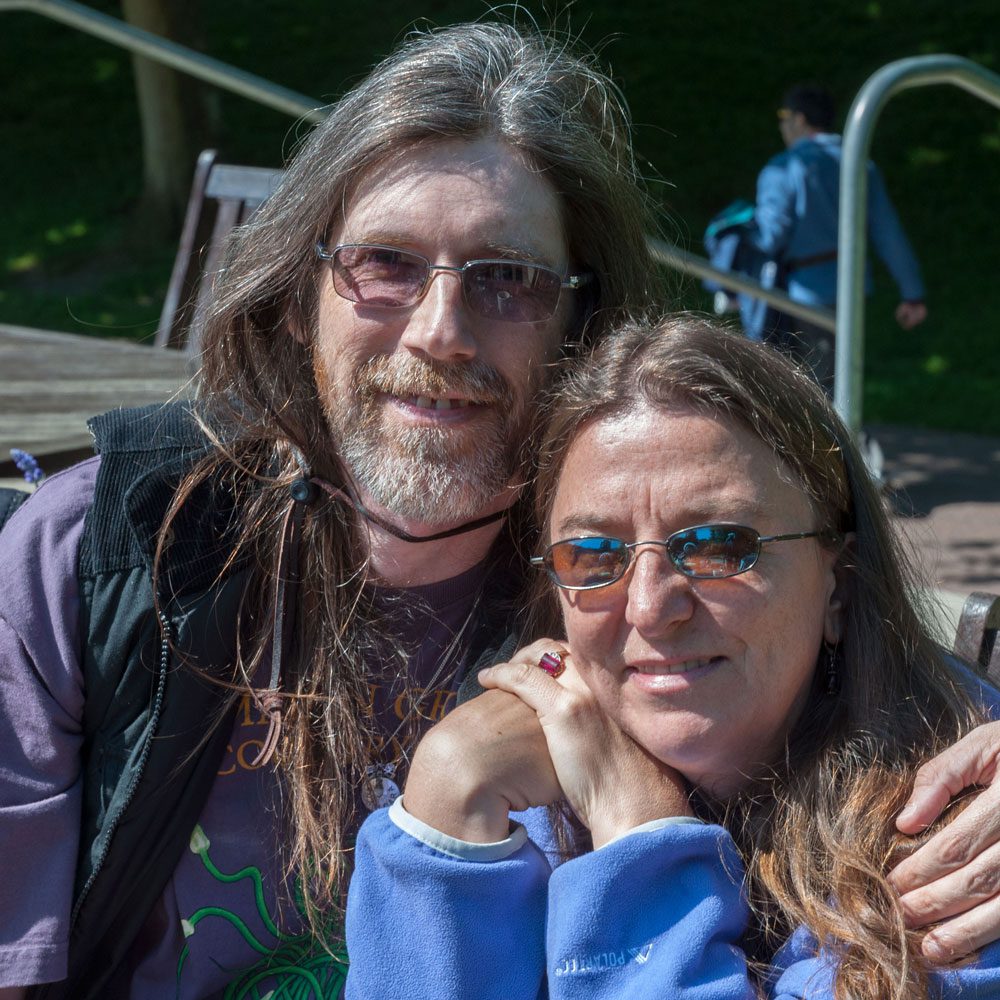
Twitter: @GumOnMyShoeBook
“I met my best friend Fran six years ago on the Facebook page of someone who was feeling suicidal. Fran disagreed with something I said and we got chatting. It was the first time I’d talked about suicide, something Fran has lived with for years. That conversation changed my life. We live 3,000 miles apart but we’ve been friends ever since. She’s said many times she’d not be alive without me in her life.
I’ve learned there are different kinds of suicidal thinking, and not every conversation about suicide is the prelude to crisis. Someone may just need a safe space to share what they’re going through. But don’t ignore it or leave it to someone else. This is as real as it gets.
There are courses to help you feel more confident about helping someone, like Mental Health First Aid and ASIST (Applied Suicide Intervention Skills Training). A friend messaged me a few weeks ago. She’d taken an overdose. I called 999, gave them her details, and stayed chatting with her until the ambulance arrived two hours later. She’s okay, but it could have ended very differently.
We can all be there for each other, and with social media and the internet it needn’t matter where we are geographically. No one is too far away to be cared for, or to care.”
Katy
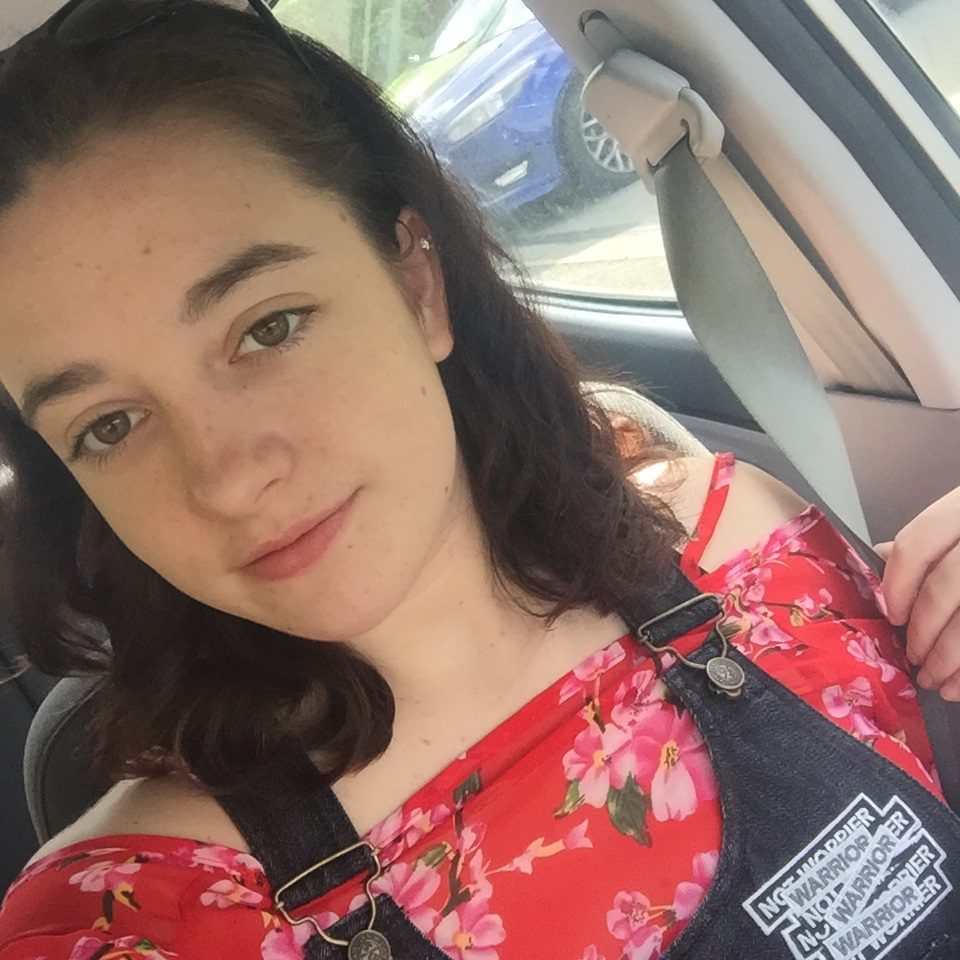
Twitter: @Impossible_Katy
“My living room is the first place I had a proper conversation about suicide with my parents, and it was probably one of the most important conversations I’ve ever had.
I had run away the day after a failed suicide attempt and when my mum brought me back, we talked about how I was feeling and what we were going to do. I had felt really isolated in my suicidal thoughts, filled with anxiety and bummed out with my depression.
Opening up was such a big step and has had a huge positive impact because now we talk openly about our mental health and it has brought us closer as a family. No-one should struggle in silence so we need to end the taboo of talking about suicide and having suicidal feelings. Creating a safe space to talk provides the opportunity to find help and maybe even save a life; it saved mine.”
Chloe
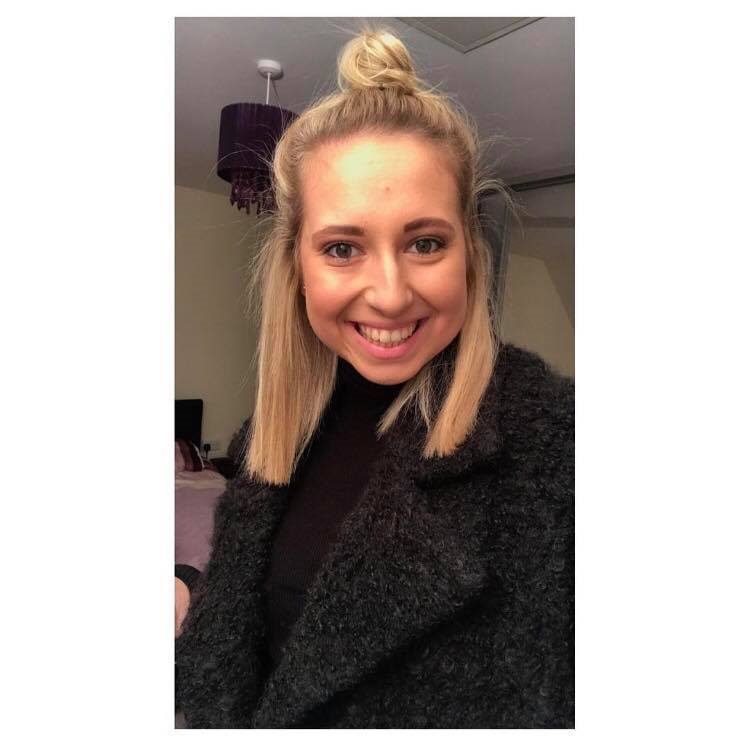
Twitter: @chloe_bellerby
“It had all gotten too much. I couldn’t think rationally, I had it all planned out. How I was going to do it. When I was going to do it. Where. What am I talking about? Suicide.
One conversation managed to save me, managed to stop me from going ahead with ending the nightmare that never seemed to stop.
My PE teacher took me into a class room at the end of the school day, I told him I couldn’t carry on being so unhappy and that no one understood the pain I was going through. The passion in his voice, the desire of needing me to continue, he reminded me how far I had come, how much I have to look forward to…how many people care.
Of course, I remained suicidal but that one conversation saved my life. For the first time in my life, I didn’t feel alone. It reminded me why talking about my depression was so important. Talking isn’t weak, it’s the strongest thing we can do.”
Abby
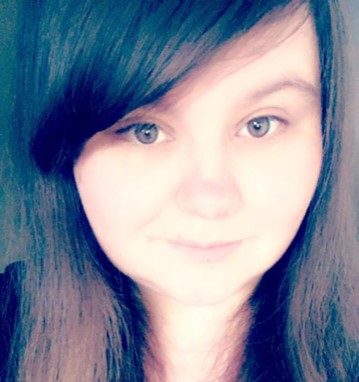
Twitter: @forallwhowander
“At a table – in a room with a complete stranger. I wasn’t experiencing suicidal thoughts, but thoughts of harming myself. The conversation started simply as to ‘why’? ‘Why do I get these thoughts’?
My answer was simple to me, if I think about the pain, I guess I kind of ‘think it away’ But why think about it? when I can talk about it, there are people willing to listen!
Speaking about my thoughts, my depression and my mental health openly to a mental health professional (who was initially a stranger) made me feel so much better and positive about things.
I’ve been taught different techniques on how to manage thoughts and feelings effectively, which i am using in everyday life, this has given me the courage to start blogging again, and be a listener to others!
I’d encourage anyone to talk about Suicide and Self harm prevention”
James Casling
“My first real conversation about suicide took place in school just after my dad took his own life on my 15th birthday – it happened between me and a mate called Joe.
People were saying how sorry they were for my loss but Joe knew how I felt as his brother had taken his own life two years before my dad. He knew how I was feeling and we connected on a level because of suicide. Even to this day he gives me strength – we don’t always talk but I know I can be open and honest with him because he knows the feelings most people will never experience. What it’s like to not only to lose someone to suicide but to have those feelings as well”
Sian

Twitter: @siantweets
“When I was in my mid teens, every single day was plagued by intrusive thoughts.
I hid them from everyone at school until I couldn’t keep my sadness in any longer. I had reached a point where I couldn’t face another day, and so, in the comfort of home, I did my best to explain to my parents.
That was over seven years ago, and the first day of my recovery.”
Felicity Rose
“It was close to Suicide Prevention day last year and I was talking to the school nurse, who I was close with, about how I wanted to share my story with mental health and suicide.
So she introduced me to the lead Pastor at my University, Pastor Angulus Wilson, and we had a brief conversation about what I could do. Our best option would be for him to interview me and that’s exactly what we did. I told him my story about how a medication change put me in a ten day suicidal phase in the summer of 2016, how I self-harmed a lot during those days and if my brilliant therapist, Nina, hadn’t gotten me to see a psychiatrist when I did, I can guarantee that I would not be writing this today. It was that bad.
The days leading up to the day that my interview would be broadcast during College Hour to not only the main campus of Fresno Pacific University, but to all of their branches as well was so nerve wracking. But in the end I was very happy I did it. Here’s a link to the interview https://youtu.be/lcV6Eiza-Os
I got lots of people thanking me for telling my story and it made me feel really good about talking about suicide because it’s important that we do. If the people where I used to live and where I live now knew the signs of depression and suicide, my friends, Isabel and David, might still be alive today. I shared my story in that interview for them because as long as I’m alive I’m going to share my story, my highs and lows in hopes that it might save someones life. I may never know that it did, but at least I know I tried.”
Becky

Twitter: @strongertoget
“I think everyone has thoughts of “I wish I wasn’t here anymore” and it’s terrifying.
I used to feel so alone with my thoughts as I thought i was the only person struggling and that must mean there was something wrong with me. I thought the very fact I was thinking about suicide made me deserve it but since opening up about my feelings, it has been a lot easier to accept and deal with.
I’ve realised you don’t need to feel ashamed about having these thoughts and there is always someone willing to talk about it with you. To someone, a quick conversation is just a few moments out of their day but to others, it can give them a reason to get through the day so it is so important to stop the stigma around suicidal thoughts and remind them there is always someone on your side!”
Leah, Mike, Beth & Jodie
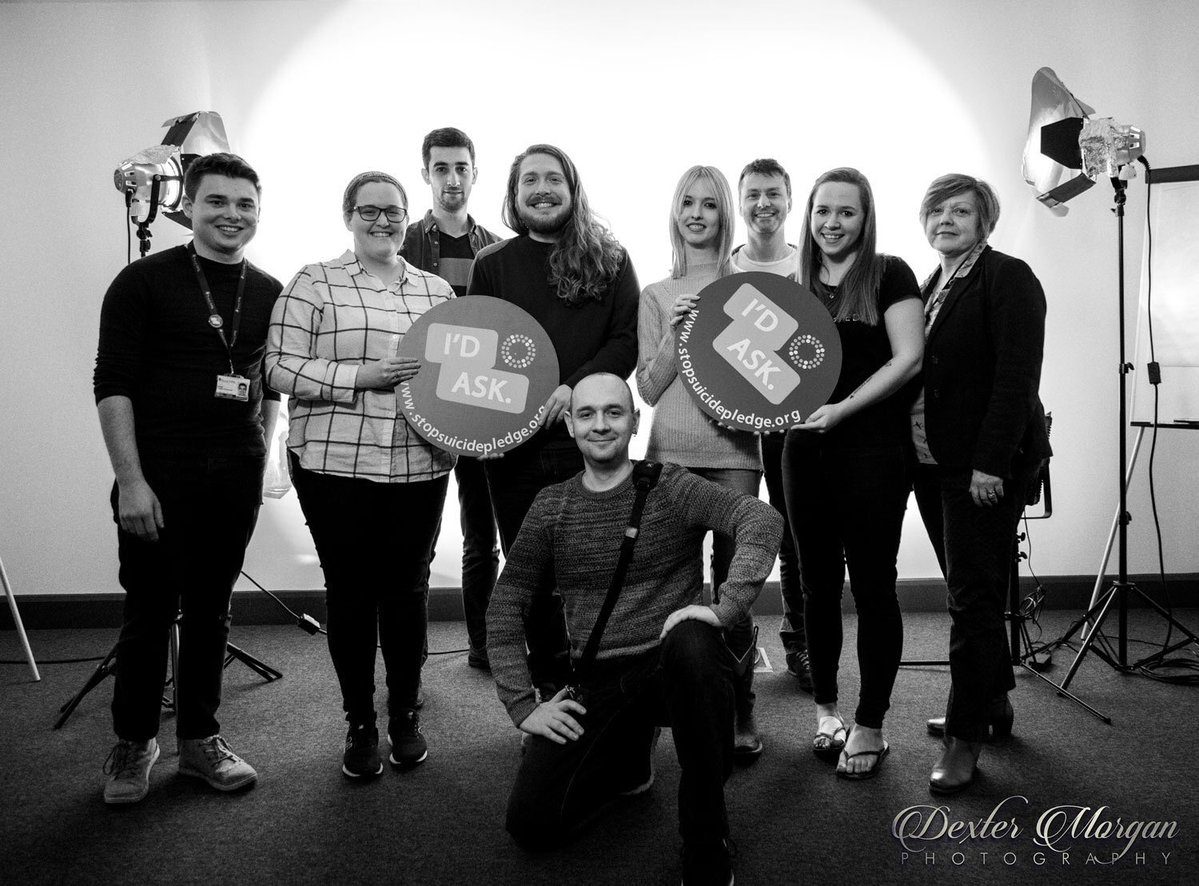
Photo taken by @DexMorganPhoto
As you may have seen from @STOPSuicideCam, Leah, Mike, Beth & Jodie have all been working on the STOP Suicide campaign and you’ll see them talking about suicide later this year! Make sure you’re following on Twitter and stay tuned…